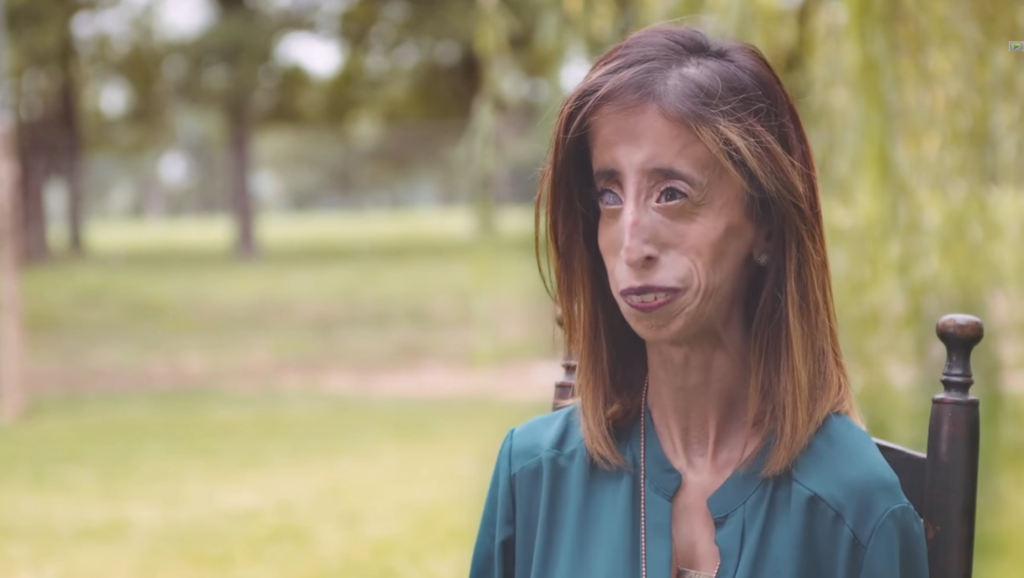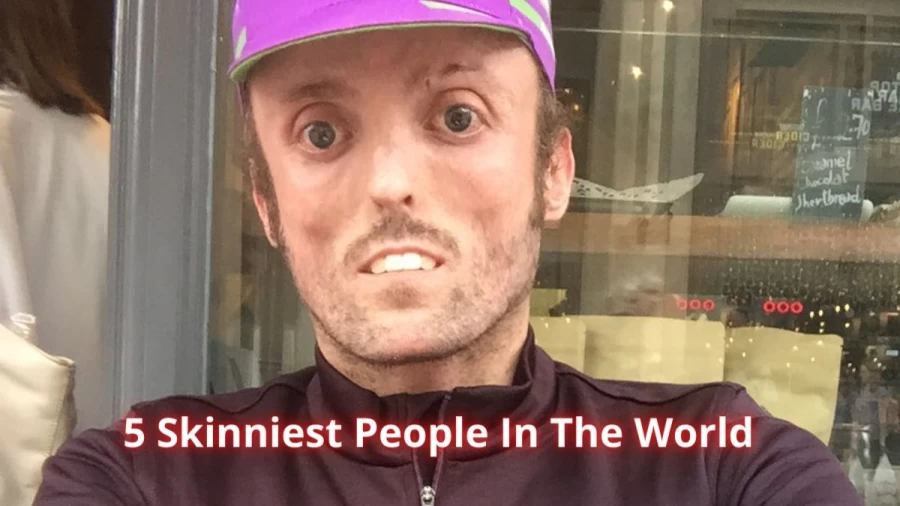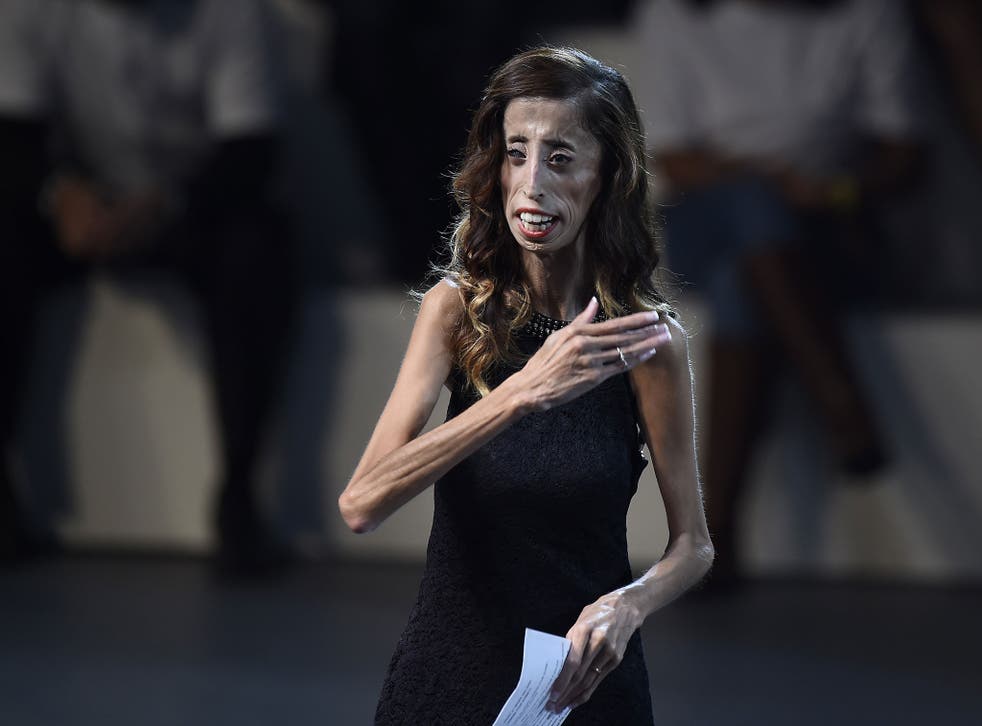The Skinniest People In The World: Unveiling Their Stories And Struggles
Have you ever wondered who the skinniest people in the world are? Well, this ain't just about celebs flaunting their slim figures on red carpets. We're diving deep into the lives of individuals whose extreme thinness is often a result of medical conditions, genetic factors, or even lifestyle choices. But hold up—this ain't your average gossip column. This is real life, folks, and it's time to shed some light on their stories.
Now, when we talk about the skinniest people in the world, we're not just throwing around random facts. This topic hits close to home because it touches on health, self-esteem, and societal norms. It's not all about looks, y’all. It’s about understanding the challenges these individuals face and how they navigate a world that often misunderstands them.
So, buckle up, because we’re about to take you on a journey through the lives of the skinniest people in the world. From their struggles to their triumphs, we’re covering it all. And don’t worry—we’ll keep it real, raw, and relatable. Let’s get started, shall we?
Read also:Unveiling The Magic Behind Noodlemag Your Ultimate Guide
Here’s the thing: thinness isn’t always a choice. For some, it’s a battle they fight every single day. So, let’s break it down, piece by piece.
Who Are the Skinniest People in the World?
When we say "skinniest people in the world," we’re talking about individuals whose Body Mass Index (BMI) falls way below the healthy range. Now, this ain’t just about dieting or working out. We’re talking about people whose bodies have unique characteristics that make them exceptionally thin. Some are born this way, while others develop conditions later in life.
Let’s talk numbers for a sec. According to the World Health Organization (WHO), a BMI below 18.5 is considered underweight. But for the skinniest individuals, their BMI can drop to alarming levels, sometimes even below 12. That’s crazy, right? And it’s not just about numbers—it’s about the health implications that come with it.
What Causes Extreme Thinness?
Now, you might be wondering, “What causes someone to be so thin?” Well, there’s no one-size-fits-all answer. Here are some of the main culprits:
- Genetics: Some folks are just naturally slim. Their bodies are wired that way, and no amount of food can change that.
- Medical Conditions: Diseases like hyperthyroidism, diabetes, and cancer can cause rapid weight loss. And let’s not forget eating disorders like anorexia nervosa, which can have devastating effects.
- Lifestyle Factors: Extreme exercise routines, poor nutrition, and stress can also contribute to extreme thinness.
But here’s the kicker: not all skinny people are unhealthy. Some maintain their weight through strict diets and exercise, while others simply have a high metabolism. It’s all about balance, folks.
Biographies of the Skinniest People in the World
Let’s take a moment to meet some of the skinniest people in the world. These individuals have faced challenges that most of us can’t even imagine. But instead of letting their circumstances define them, they’ve chosen to rise above and inspire others.
Read also:Uncensored Manhua The Rise Of A Bold And Unfiltered Art Form
Meet Jyoti Amge: The World’s Smallest Woman
Jyoti Amge, from India, holds the Guinness World Record for being the world’s smallest woman. Standing at just 62.8 cm (24.7 inches), Jyoti’s small stature is due to a condition called dwarfism. But don’t let her size fool you—Jyoti has a big heart and a fierce spirit. She’s appeared in movies, TV shows, and even met Hollywood stars like Leonardo DiCaprio.
Here’s a quick look at Jyoti’s stats:
| Name | Height | Weight | Condition |
|---|---|---|---|
| Jyoti Amge | 62.8 cm | 3 kg | Dwarfism |
Health Implications of Extreme Thinness
Extreme thinness isn’t just about looking different. It comes with a whole host of health issues that can affect both the body and mind. Here’s what you need to know:
Physical Health Challenges
Let’s start with the physical stuff. Being too thin can lead to:
- Bone density loss, increasing the risk of fractures.
- Weakened immune system, making it harder to fight off infections.
- Fertility issues, especially in women.
- Malnutrition, which can affect organ function.
And let’s not forget the mental health aspect. Many people who are extremely thin struggle with anxiety, depression, and low self-esteem. Society’s obsession with the "perfect body" can make things even worse.
Social Stigma and Misunderstandings
Let’s face it: the world isn’t always kind to those who don’t fit the mold. People who are extremely thin often face judgment, ridicule, and even bullying. But here’s the thing: their thinness isn’t always a choice. So why should they be judged for something they can’t control?
Social media hasn’t helped matters. Platforms like Instagram and TikTok are filled with images of "perfect" bodies, which can make people feel inadequate. But the truth is, there’s no such thing as a perfect body. We’re all unique, and that’s what makes us beautiful.
Breaking Down Stereotypes
It’s time to challenge the stereotypes surrounding thinness. Here are a few things to keep in mind:
- Not all thin people are unhealthy.
- Extreme thinness isn’t always a result of eating disorders.
- Everyone’s body is different, and that’s okay.
So, the next time you see someone who’s exceptionally thin, try not to judge. Instead, offer them kindness and understanding. You never know what they’re going through.
Medical Treatments and Support
For those who struggle with extreme thinness, there are options available. From medical treatments to lifestyle changes, there’s hope for a healthier future. Here’s what you need to know:
Treatment Options
Depending on the cause of extreme thinness, treatment options can vary. Here are a few possibilities:
- Medication: For conditions like hyperthyroidism, medications can help regulate hormone levels.
- Nutritional Counseling: Working with a dietitian can help individuals develop healthy eating habits.
- Therapy: For those with eating disorders, therapy can be a life-changing experience.
But here’s the thing: treatment isn’t always easy. It requires patience, dedication, and support from loved ones. And that’s where community comes in.
Community and Support Networks
Having a support system is crucial for anyone dealing with extreme thinness. Whether it’s family, friends, or support groups, having people who understand what you’re going through can make all the difference.
Online communities, like forums and social media groups, can also be a great resource. They provide a safe space for people to share their experiences, ask questions, and offer advice. And let’s not forget the importance of mental health support. Therapy and counseling can help individuals cope with the emotional challenges of extreme thinness.
How You Can Help
So, what can you do to support someone who’s struggling with extreme thinness? Here are a few ideas:
- Listen without judgment.
- Offer practical help, like cooking healthy meals.
- Encourage them to seek professional help if needed.
Remember, small acts of kindness can go a long way.
Cultural Perceptions of Thinness
Let’s talk about how different cultures perceive thinness. In some parts of the world, being thin is seen as a sign of wealth and success. In others, it’s viewed as a sign of weakness or illness. But here’s the thing: beauty is subjective. What one culture finds attractive, another might find unappealing.
Take a look at the fashion industry, for example. For decades, models have been expected to fit a certain mold—tall, thin, and flawless. But in recent years, there’s been a push for diversity and inclusivity. Brands are starting to embrace models of all shapes and sizes, which is a step in the right direction.
Changing the Narrative
It’s time to change the narrative around thinness. Instead of focusing on appearance, let’s focus on health and well-being. Let’s celebrate individuals for who they are, not what they look like. And let’s teach future generations that beauty comes in all shapes and sizes.
Conclusion: Embracing Diversity and Understanding
As we wrap up this journey into the lives of the skinniest people in the world, let’s take a moment to reflect. Extreme thinness isn’t just about numbers on a scale or pictures in a magazine. It’s about the people behind the stories—their struggles, their triumphs, and their resilience.
So, the next time you see someone who’s exceptionally thin, remember this: they’re more than just their appearance. They’re human beings with unique experiences and stories to share. Let’s embrace diversity, challenge stereotypes, and offer kindness and understanding to all.
And hey, if you’ve learned something new today, why not share this article with your friends? Knowledge is power, and the more we talk about these issues, the more we can create a world that’s inclusive and understanding. So, what are you waiting for? Hit that share button and let’s make a difference!
Table of Contents
Who Are the Skinniest People in the World?
Biographies of the Skinniest People in the World
Health Implications of Extreme Thinness
Social Stigma and Misunderstandings
Medical Treatments and Support
Community and Support Networks
Cultural Perceptions of Thinness
Conclusion: Embracing Diversity and Understanding


